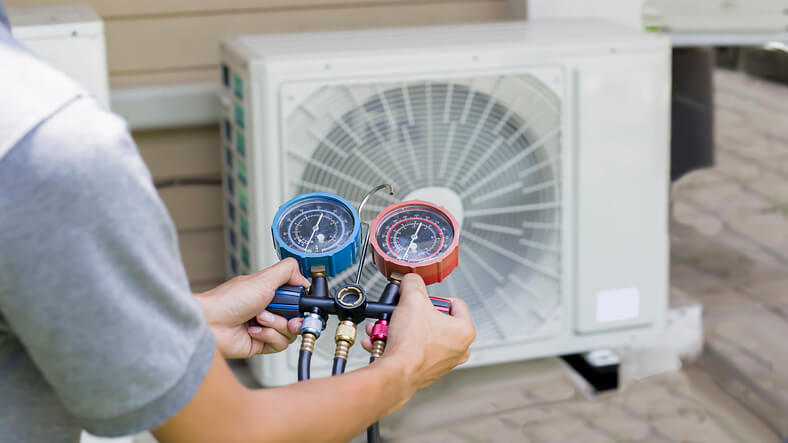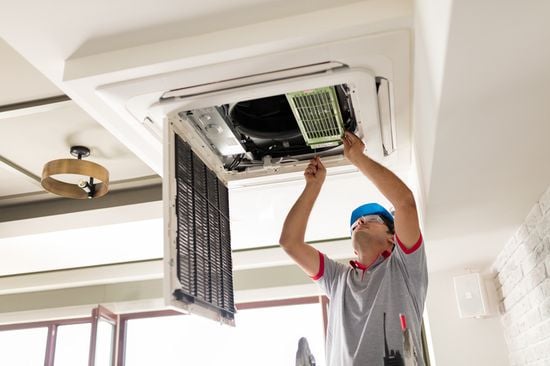Have you ever walked into your home or office and been greeted by a musty smell coming from the air ducts? This unpleasant odor can be a sign of underlying issues that need attention. Fortunately, there are several DIY tips you can implement to tackle this problem. In this article, we will explore effective methods to eliminate the musty smell in air ducts, ensuring a fresh and healthy environment for everyone.

Understanding the Cause of Musty Smells
Before diving into solutions, it’s important to understand what causes these unpleasant odors. Often, a musty smell in air ducts is caused by mold or mildew growth. This can occur due to moisture accumulation in the ducts, which provides a perfect breeding ground for mold. Additionally, dust and debris can contribute to the problem, exacerbating the smell.
Signs of Mold in Air Ducts
Identifying the presence of mold in your air ducts is crucial for addressing the issue. Some common signs include visible mold growth around vents, increased allergy symptoms, and a persistent musty odor. If you notice any of these signs, it’s important to act promptly.
Step 1: Inspect Your Air Ducts
The first step in addressing a musty smell is conducting a thorough inspection of your air ducts. Look for visible signs of mold or mildew, such as discoloration or fuzzy patches. Pay close attention to areas near vents and where moisture may accumulate.
Step 2: Clean and Vacuum the Ducts
Once you’ve identified areas of concern, it’s time to clean your air ducts. Use a vacuum with a long hose attachment to remove dust and debris. For more stubborn mold or mildew, consider using a brush or cloth with a mild detergent solution. This step is crucial in preventing further growth and eliminating the musty smell.
Step 3: Control Humidity Levels
Excess moisture is a breeding ground for mold, so maintaining optimal humidity levels is key. Consider using a dehumidifier to keep humidity levels below 60%. This will help prevent mold growth and keep your air ducts smelling fresh.
DIY Solutions to Eliminate Musty Odors
Use Baking Soda and Vinegar
A simple yet effective solution is using baking soda and vinegar. Sprinkle baking soda inside the ducts and let it sit for a few hours before vacuuming it up. Follow this by spraying a mixture of vinegar and water inside the ducts to neutralize odors.
Essential Oils for a Fresh Scent
Adding a few drops of essential oils to your air filter can provide a fresh scent throughout your home. Opt for oils like lavender or eucalyptus for a pleasant aroma.
Regular Maintenance and Cleaning
Regular maintenance is essential in preventing future musty smells. Schedule regular cleaning of your air ducts and HVAC system to ensure optimal performance and air quality.
When to Call a Professional
While DIY tips can be effective, sometimes professional intervention is necessary. If the musty smell persists despite your efforts, it may be time to call in a professional duct cleaning service. They have the tools and expertise to thoroughly clean and sanitize your air ducts.
Additional Tips for Air Quality
Change Air Filters Regularly
Regularly changing your air filters is crucial for maintaining good air quality. Clogged filters can trap dust and allergens, leading to poor air circulation and unpleasant odors.
Inspect for Leaks
Leaks in your ductwork can allow moisture to enter, leading to mold growth. Regularly inspect your ducts for leaks and seal any gaps to prevent this issue.
Use a UV Light
Installing a UV light in your HVAC system can help kill mold spores and bacteria, improving air quality and preventing musty odors.

Frequently Asked Questions
How often should I clean my air ducts?
It’s recommended to clean your air ducts every 3 to 5 years, depending on factors like pets, allergies, and indoor air quality.
Can I use bleach to clean mold in air ducts?
While bleach can kill mold on non-porous surfaces, it’s not recommended for air ducts as it may not reach all areas and can be harmful if inhaled.
What if the musty smell persists?
If the smell persists despite cleaning, it may be time to consult a professional to identify and address any underlying issues.
For more information on maintaining your HVAC system and ensuring fresh air, check out this comprehensive guide.
This article contains affiliate links. We may earn a commission at no extra cost to you.